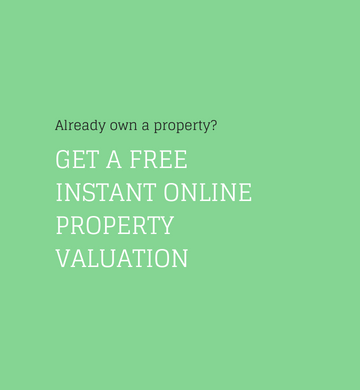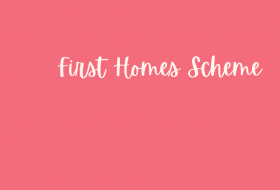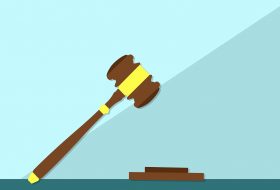We know buying your own home is a big deal (it was for us) and, since it is also likely to be the biggest purchase of your life, understanding mortgages is quite important. We know first-hand how complicated the mortgage market can be, so this is us keeping it simple for you.
What is a mortgage?
A mortgage is a loan on a property or piece of land, for an agreed number of years. Traditionally most mortgages run for a 25-year term, but they can be shorter or longer.
When you ‘take out’ a mortgage with a lender you are securing a loan against the value of the property you are buying until you have repaid the loan.
You will pay interest on the amount that you have borrowed, which means if you don’t keep up the loan repayments the lender can take back (repossess) your home and sell it to get their money back.
Can I afford a mortgage?
You can get a rough guide on the maximum amount you could borrow with our mortgage calculator https://move-engine.com/understand-how-much-you-could-borrow-for-a-mortgage
Remember, lenders will want to see proof of your income and information on your debts and other expenditures. Be upfront and honest about your financial situation from the start as they will ask for copies of recent bank statements.
You will be assessed on the information you provide, and if they don’t think you can afford it they may refuse to offer you a mortgage
Will I need a deposit?
Yes, you will need a sum of money to put towards the cost of the property you want to buy. Usually, this is between 5 and 10% of the value of the property.
The bigger your deposit, the lower your loan to value, and the mortgage interest rate you will be able to get.
Loan to value (LTV) is simply the amount of your home you own outright, compared to the amount owed on a mortgage. For example:
You buy a £200,000 property with a 10% deposit your LTV is 90%,
You buy a £200,000 property with a 20% deposit your LTV is 80%,
Lower LTVS have lower interest rates because the lender takes less risk with smaller loans.
Where do I get a mortgage?
You can choose to go direct to a bank or building society, or you can use a mortgage broker or independent financial adviser (IFA). A mortgage broker will compare different mortgage products on the market and make recommendations based on your personal circumstances. Brokers and IFAs can also have access to mortgage products that are not offered directly to customers.
Using a broker or IFA can make the whole process much simpler, they can also help with the paperwork and your application. However, their costs can vary from free to hundreds of pounds, so confirm this upfront. Also check how much of the market they have access to as it does vary.
If you decide to find a mortgage on your own, start with the comparison websites, which will help you compare deals and find the best mortgage rates…
moneyfacts.co.uk/compare/mortgages/
www.moneysupermarket.com/mortgages/
which.co.uk/money/mortgages-and-property/compare-mortgages
What kind of mortgage do I need?
Repayment vs Interest-only
With a repayment mortgage, you pay the interest and part of the capital (the amount you borrowed) off every month. This means that at the end of your mortgage term you will have paid off the whole mortgage plus the interest and will own your home.
With an interest-only mortgage, you only pay the interest on the loan and nothing off the capital (the actual amount you borrowed). You have to have a plan in place for repaying the loan at the end of the mortgage term. These mortgages are much harder to get as they are a greater risk for lenders and are much less common for home purchases.
Fixed rate vs variable
A fixed rate mortgage means your repayments will remain the same for a set period. Giving you the security that your mortgage repayment will remain exactly the same, even if interest rates go up.
Variable rate mortgages could go up or down in line with the Bank of England base rate. People choose variable rate mortgages when they do not need longer-term security and may want to switch mortgage deals easily.
How do I apply for a mortgage?
Applying for a mortgage is usually a two-stage process.
Stage 1 – fact-finding
- This is to help you find out how much you can afford and what type of mortgage you might need.
- The lender (or your mortgage broker) will ask you a series of questions to work out what kind of mortgage you want and for how long. They will also get a good idea of your financial situation.
- They will use this information to give you an indication of how much you could borrow and provide key information about the mortgage product, their service and any fees or charges.
Stage 2 – the application
- You will need to provide evidence of your income and expenditure for the lender (or your mortgage broker) to do a detailed affordability assessment and ‘stress test’ of your finances.
- You will be asked to answer detailed questions about your finances and any plans that could affect your income. They will assess whether you will be able to keep up with repayments on your mortgage if interest rates rise in the future (this is the stress test).
- If your application is accepted, you will be given a ‘binding offer’ and a Mortgage Illustration document explaining the terms of your mortgage. You then have seven days (sometimes longer) to consider the offer.
So, you want to get a mortgage? Where do you start?
1. Check out our finance planner. Complete with mortgage calculators and much more.
2. Do you need Help to Buy? Check out our info on Equity Loans and Shared Ownership.
3. Do you need a mortgage adviser?







